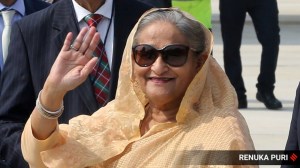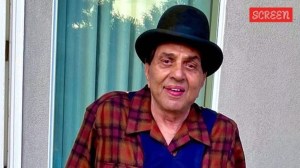Indian scientists want sanctions to go
HYDERABAD, MARCH 25: Leading Indian scientists have welcomed the signing of the agreement for setting up of an Indo-US Forum for Science a...

HYDERABAD, MARCH 25: Leading Indian scientists have welcomed the signing of the agreement for setting up of an Indo-US Forum for Science and Technology during President Bill Clinton’s visit but cautioned that continuing post-Pokhran sanctions is a thorn in the relationship.
In a round table conference here, they told the visiting American team that while the forum had "opened the door" for a number of mutually beneficial collaborations, sanctions stood in the way of a healthy cooperation in S&T.
Washington removed 51 entities from the sanctions list just prior to Clinton’s visit to India, but 149 scientific institutes and enterprises, suspected to be aiding India’s nuclear and defense efforts, continue to be in the black list.
Former Science Minister M G K Menon who set the tone for the Indian viewpoint said that cooperation implied mutual trust and friendship. "We have to move forward on trust and the right environment should be created for cooperative research," he said, adding the "umbrella" sanctions that exist today "will not serve any purpose."
Menon said that even at the height of the Cold War, American and Soviet scientists interacted freely. "On the contrary, several US scientists who wanted to attend a conference at the Tata Institute of Fundamental Research in Mumbai last January were denied permission," he said. Menon said sanctions and the intellectual property rights (IPR) issues were major hurdles. He hoped the Forum would be able to clear these.
Udipi Rama Rao, former Chairman of the Space Commission, said sanctions imposed after India embarked on a cryogenic engine project were not really justified as they led to denial of several non-dual use technologies and even products like Integrated Chips (ICs). Rao said that under the Forum the two countries might consider launch of "complementary" satellites for disaster management and sustainable agriculture.
Raghunath Mashelkar, secretary to the Department of Scientific and Industrial Research, who also referred to sanctions and differences over IPR issues, said India looked towards a bio-partnership instead of biopiracy with the US.
The US team led by Neal Lane, assistant to President Clinton for science and technology, preferred not to react to the references on sanctions on the plea that this is an issue between the two governments and not part of the agenda of the round table.
Describing the round table discussion as "historic", Lane said the informal meeting was essentially to generate ideas about future collaborations and how to share knowledge.
Valangiman Ramamurthi, secretary to the Department of Science and Technology who co-chaired the meeting, said he looked upon the Forum as a means to strengthen its S&T base and get access to American facilities and educational systems and business opportunities in areas like Information Technology and biotechnology.
The round table did not identify specific areas for collaboration, as this will be done later. The US scientists, however, suggested that fuel cells, and nanotechnology, bio-fuels, agricultural biotechnology, and transgenic crops, could be possible areas for joint research. Development of hydrogen as an energy source was also suggested.
Mashelkar said the areas referred to by President Clinton in his speech to the Indian Parliament – Information Technology, environment, alternative sources of energy, and health – can all form the basis of cooperation.
Ocean Secretary Muthunayagam proposed cooperation in setting up a demonstration plant for exploiting methane-rich gas hydrates in the sea around India.
C N R Rao, President of the Jawaharlal Nehru Center for Advanced Studies in Bangalore, said the Forum must find new ways of linkages besides joint projects. He said advanced materials could be one area of joint research.
The 45 years of cooperation has seen many ups and downs. After riding a peak in the 1980s, that saw the launching of the S&T initiative under the Gandhi-Reagan agreement, it went downhill in the 1990s, reaching a low after the Pokhran tests two years ago.
What is left now are programmes for research into vaccines and newer contraceptives and exchange of weather data and scientists. Efforts to lift the level of cooperation to higher levels failed because of bad political environment, according to DST officials who said the Forum concept itself was three years old.
They said Clinton’s visit helped clear the air and look at the issues afresh, leading to signing of the agreement on the Forum. The March 21 agreement signed in New Delhi has called for the creation of the Forum that would be run by a 14 member governing board representing governments, academia and industry of both countries. The forum will have a corpus of Rs 30 crore and use the interest to support its operations. It will be free to raise funds from industry and private sources.
Asked if the Forum will work, Ramamurthi said, "I believeit will. But we have to wait and see."
Mashelkar described Indo-US science cooperation as a "frozen chicken." "For nine long years, it was left in the freeze," he said, adding "the Forum has brought the chicken out of the freezer to be warmed up."





- 01
- 02
- 03
- 04
- 05


























